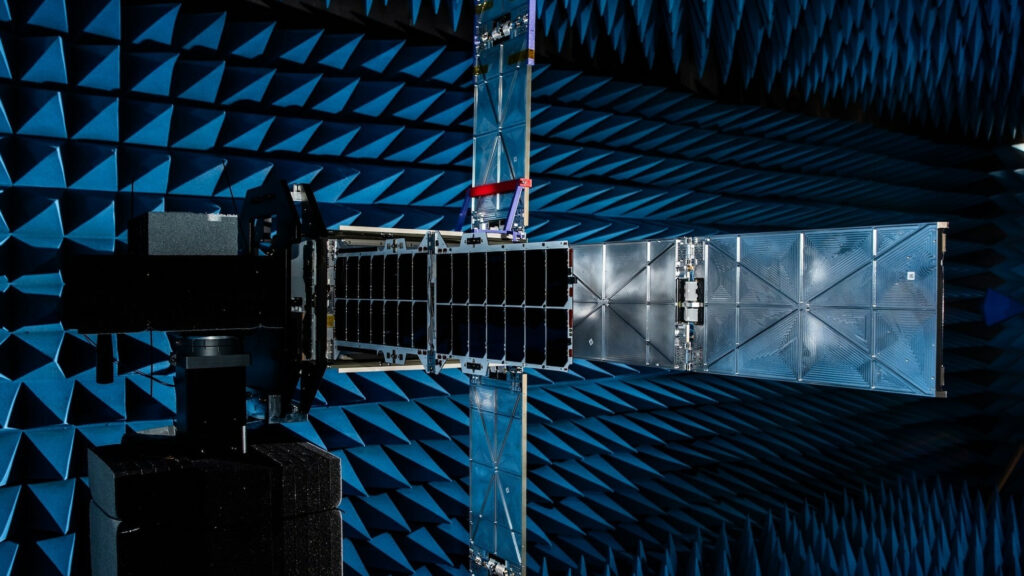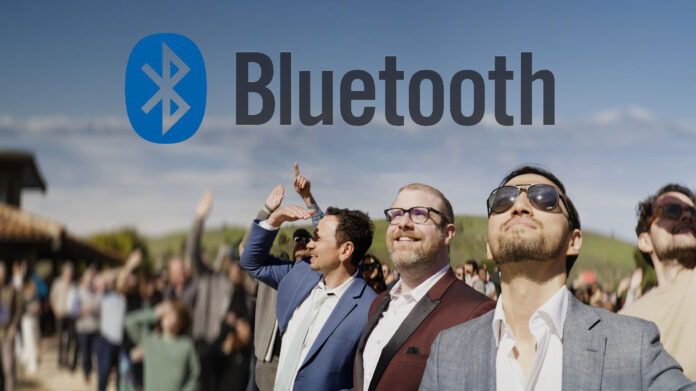US startup Hubble Network has claimed Bluetooth-based satellite comms is a reality, and a “revolution in IoT”, after transmitting data from standard Bluetooth devices to its new satellite constellation, launched in March. The firm, with a $20 million funding round behind it, reckons it will extend Bluetooth transmissions from 10 metres to hundreds of kilometres. It wants to “connect a billion devices” on the “world’s first truly global, cost-efficient, and low-power network”, it said.
In a statement, it gushed: “It’s not every day you hear about a technological leap that fundamentally changes the way we think about global connectivity. Today is that day. Hubble Network has just achieved something that was once thought impossible: the first-ever Bluetooth connection directly to space… These aren’t just any satellites; they’ve successfully reached their orbits and managed to receive signals from a simple 3.5mm Bluetooth chip.”

The firm launched two satellites in March from Vandenberg Space Force Base in California – designed and deployed by Vienna-based Spire Global on on the SpaceX Transporter-10 mission (which also carried two Sire satellites for Myriota, another satellite IoT company). Hubble Network has since transmitted data over a distance of 600 kilometres between the satellites and a standard Bluetooth unit. It has a stated plan to have a constellation of 96 satellites by 2028.
Its solution enables satellite IoT in commonly-available devices just by flashing new software, the story goes. It claims “20 times less battery drain and 50 times lower operating costs”. It does not specify a comparison tech; but it references cellular. It stated: “Traditional networks… struggle in remote areas, drain too much power, and cost too much… [Hubble] addresses these issues head-on… by enabling off-the-shelf Bluetooth with a software update to connect to [our] satellite network without cellular reception.”
Bluetooth has a clear advantage over rival satellite IoT technologies just because it is a mass-market technology, which is cheap. Five billion Bluetooth devices are sold annually, the company said. It said: “[We are] paving the way for a revolution in IoT… It’s not just an improvement; it’s a transformation.”
Hubble Network raised $20 million in a Series A round a year ago from Transpose Platform and Y Combinator. The money went into its first launch, plus “initial pilot customers”. US IoT “safety company” Life360, co-founded by the firm’s chief executive Alex Haro, has signed a “non-binding” deal to be the “exclusive consumer app” for its satellite network.
Life360 will use its satellite network to launch a new tracking solution called Find with Life360, which uses Bluetooth-based Tile trackers – and which has the “potential to… surpass the finding network capabilities of Apple and Google”, apparently. Life360 claims 66 million active smartphone users. “The combined Hubble and Life360 network will be designed to make any item findable without the need for cellular connectivity,” the duo said.
It would appear, beyond its “exclusive” consumer pursuits with Life360, Hubble Network is targeting more traditional enterprise / industrial IoT customers. It cites applications for “supply chain, infrastructure, agriculture, and oil and gas”. It mentions customers in the construction and defence sectors separately. It stated: “This isn’t just about sending a signal to space. It’s about what this capability can do for industries worldwide.”
Haro, also co-founder at Hubble Network, said: “Many thought it couldn’t be done. The skeptics were vocal, claiming that Bluetooth technology couldn’t possibly bridge the vast expanse of space. We’ve disproved thousands of skeptics. By showcasing that we can send signals directly from Bluetooth chips and receive them in space 600 kilometres away, we’ve opened a new realm of possibilities.”
Haro took Life360 “from idea to IPO” previously, as a GPS watch for kids. Co-founded Ben Wild, also chief technology officer at Hubble Network, “created a peer to peer wireless network that eventually became Amazon sidewalk”, according to the company marketing. Wild restated: “Our approach allows existing Bluetooth-enabled devices to be retrofitted to transmit data to the Hubble Network without any hardware modifications.”

